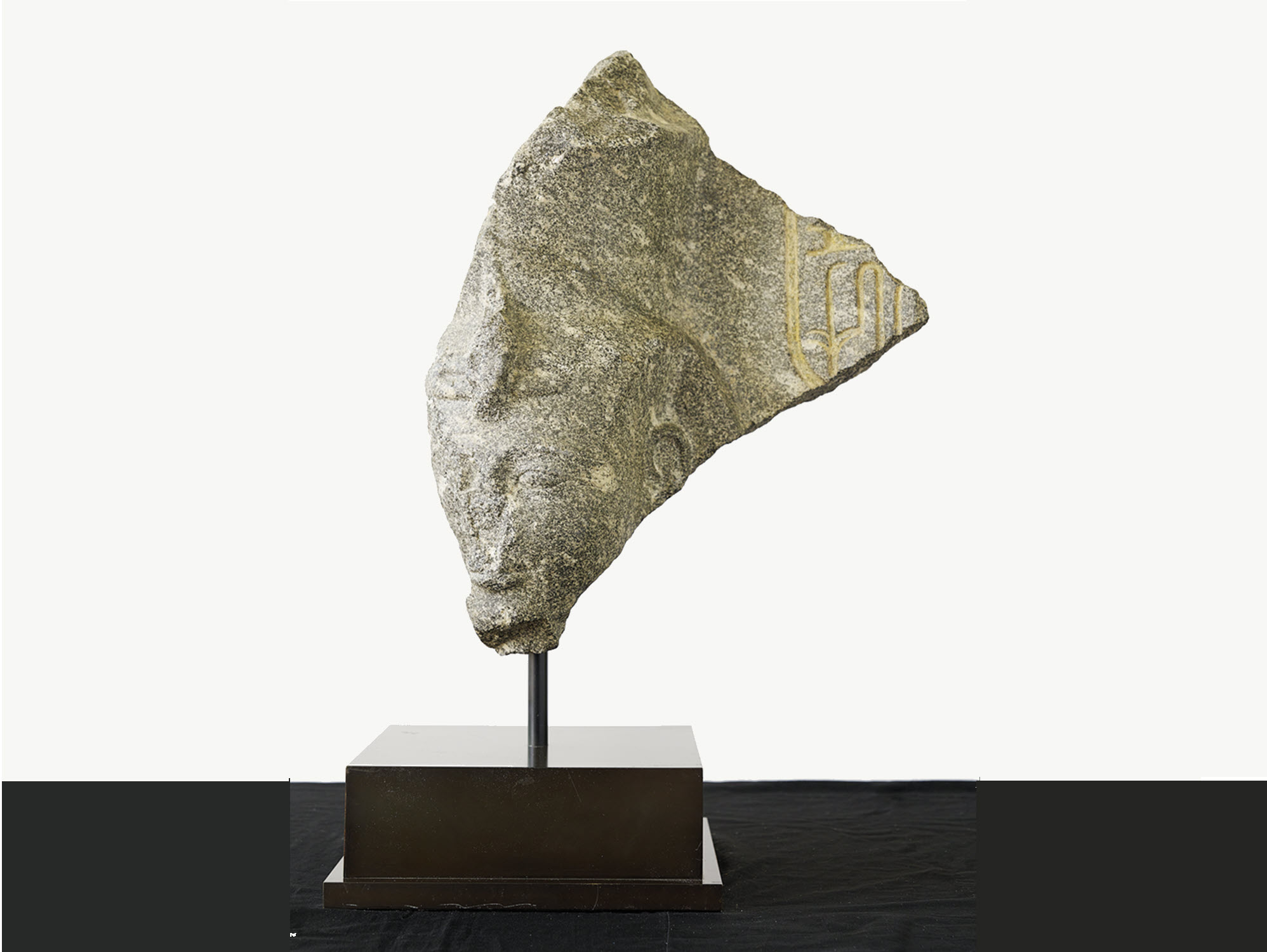
Switzerland returns fragment of statue of Ramesses II to Egypt

Switzerland has returned to Egypt a fragment of a statue of the pharaoh Ramesses II that is more than 3,400 years old. The object had been confiscated in Geneva as part of cantonal criminal proceedings.
The sculpture of Ramesses II is part of a group statue in which the pharaoh is seated alongside various Egyptian deities, the Federal Office of Culture said in a statementExternal link on Monday. The fragment was stolen between the late 1980s and early 1990s from the Temple of Ramesses II in Abydos. It passed through several countries before arriving in Switzerland.
The stone sculpture was handed over to the Egyptian embassy in Bern on Monday by Carine Bachmann, director of the Federal Office of Culture. Its return is in accordance with the law on the international transfer of cultural property, the office said.
This restitution underlines the joint commitment of Switzerland and Egypt to combating the illicit trade in cultural property, which was strengthened in 2011 by the entry into force of a bilateral agreement on the import and return of cultural property.
Both countries are parties to the 1970 UNESCO Convention to prohibit and prevent the illicit import, export and transfer of ownership of cultural property. Egypt has been hard hit by the looting and destruction of its archaeological sites. The objects at risk range from everyday objects to religious or ritual objects, such as funerary offerings, statues and other architectural elements.
Ramesses II, also known as Ramesses the Great and, in ancient Greek sources, Ozymandias, was an Egyptian pharaoh who lived from around 1303BC-1213BC.

More
The war on stolen artefacts

In compliance with the JTI standards
More: SWI swissinfo.ch certified by the Journalism Trust Initiative





























You can find an overview of ongoing debates with our journalists here . Please join us!
If you want to start a conversation about a topic raised in this article or want to report factual errors, email us at english@swissinfo.ch.